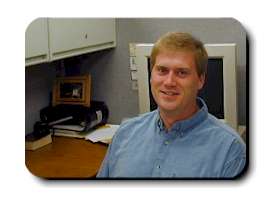Clay Shields - CERIAS, Purdue University
Students: Spring 2026, unless noted otherwise, sessions will be virtual on Zoom.
Tracing Denial-of-Service Attacks; or why we may never know who attacked Yahoo et. al.
Feb 18, 2000
Download: Watch on YouTube
Watch on YouTube
Abstract
The recent spate of attacks against Yahoo and other sites with large on-line presences brought denial-of-service attacks into the public consciousness. The methods used in these attacks make it very difficult, if not impossible, to locate the source of the attacks. The problem lies not only in finding the particular computers used to launch the attacks, but also in finding the individuals controlling those computers. I will discuss the attacks that occurred, why it is so difficult to track the intruders, research work that attempt to make it possible do so, and open research problems in the area. CERIAS has on-going work related to the problem of tracking intruders across the Internet, and I expect this to be an evolving and interesting area of research in the future.About the Speaker

Ways to Watch

Watch Now!
Over 500 videos of our weekly seminar and symposia keynotes are available on our YouTube Channel. Also check out Spaf's YouTube Channel. Subscribe today!- Upcoming
- Past Seminars
- Previous Speakers
- Open Dates (Fall/Spring)
- Attending the Seminar
- About the Weekly Seminar
- CPE Credit Information (PDF)
- Join our Mailing List


